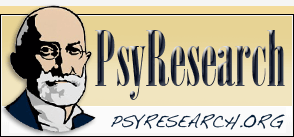 |
||
International Journal of Stress Management - Vol 32, Iss 1 | Random Abstract |
 International Journal of Stress Management is a forum for the publication of peer-reviewed and thus high-quality original articlesâempirical, theoretical, review, and historical articles as well book reviews and editorials. International Journal of Stress Management is the official journal of the International Stress Management Association (ISMA), a nonprofit organization dedicated to working for a less stressful world. ISMA seeks to advance the education of professionals and students and to facilitate methodologically sound research in the broad interdisciplinary stress management field that includes psychology, business and industry, dentistry, education, medicine, nursing, occupational therapy, physical therapy, psychiatry, and speech therapy.
International Journal of Stress Management is a forum for the publication of peer-reviewed and thus high-quality original articlesâempirical, theoretical, review, and historical articles as well book reviews and editorials. International Journal of Stress Management is the official journal of the International Stress Management Association (ISMA), a nonprofit organization dedicated to working for a less stressful world. ISMA seeks to advance the education of professionals and students and to facilitate methodologically sound research in the broad interdisciplinary stress management field that includes psychology, business and industry, dentistry, education, medicine, nursing, occupational therapy, physical therapy, psychiatry, and speech therapy.Copyright 2025 American Psychological Association
- A meta-analysis of resilience in the workplace.
Resilience is a potentially important factor for stress management, well-being, and success in the workplace. Consistent with this, there is a growing literature base on resilience at work. At the same time, there remains confusion and inconsistency about basic issues such as how to conceptualize resilience and the nature of resilience–outcome relationships. This meta-analysis focused on three distinct conceptualizations of individual-level resilience (i.e., capacity, enactment, demonstration), as well as their associations with valued workplace outcomes (i.e., performance, job attitudes, psychological well-being, physical health) and further considered potential moderators of these relationships. Overall, based on an examination of 279 primary sources including 297 independent samples (total N = 432,458), it was found that the three resilience components generally exhibited positive associations with each other and with four outcome domains. Several moderating variables were examined, including the focus of resilience measurement, presence of adversity, occupational risk, outcome source, and publication status; unexplained variability in resilience–outcome relationships remained even after accounting for these factors. The authors discuss the implications of these findings and provide suggestions for future research. (PsycInfo Database Record (c) 2025 APA, all rights reserved)

- App yourself: A meta-analysis of the effectiveness of well-being mobile apps on employee well-being and mental health.
Employee well-being has become a significant management concern for employers who seek to improve employee performance and retention. Mobile apps can provide a convenient solution with readily available, adaptable, and employee-driven tools to address employee well-being and mental health issues. This article presents a meta-analysis of 18 empirical studies that examined the effectiveness of mobile apps provided by employers for reducing stress, anxiety, and depression and improving overall well-being among employees. The study compared psychological and physical app orientations. The findings indicate that mobile apps are effective in reducing stress and depression and improving overall well-being. Mobile mental health solutions should be tailored to specific audiences based on variations in effectiveness by gender and age. This article provides recommendations for selecting and adapting mobile solutions to fit the organizational context. (PsycInfo Database Record (c) 2025 APA, all rights reserved)

- Well-being among health care professionals: A hybrid review, integrative framework, and research agenda.
High levels of stress and burnout are common mental health issues among health care professionals (HCPs), which were exacerbated during the COVID-19 pandemic. These issues hinder the well-being of HCPs, resulting in failures in health care systems. Despite being a crucial phenomenon, there is a lack of comprehensive and consolidated review of well-being among HCPs. This study addresses this research gap by conducting a hybrid systematic review of well-being in health care research. By employing the Preferred Reporting Items for Systematic Reviews and Meta-Analyses protocol, the study builds on 213 documents from the Scopus database. It starts with descriptive analysis to provide an evolutionary productivity concerning the domain. Further, a conceptual structure identifies and categorizes the literature into eight major themes: (1) work and life conditions influencing well-being, (2) restoring diminished well-being, (3) dynamics of emotions in well-being, (4) extending job demand-resource model to facilitate well-being, (5) interplay between health care providers and patient’s well-being, (6) workplace relationship and well-being, (7) ideal leadership for well-being, and (8) illusiveness of well-being. These themes were examined to gain an in-depth understanding of the phenomenon and to provide a consolidated integrative framework presenting its antecedents, mediators, moderators, and outcomes at the individual, interpersonal, and organizational levels. The study concludes by outlining five promising future research avenues and discussing the theoretical and practical implications. (PsycInfo Database Record (c) 2025 APA, all rights reserved)

- From workaholism to exhaustion: The weekly manifestation of a personal demand in a supportive organizational context.
In this study, we adopted a multilevel perspective over workaholism, conceptualized as a personal demand driving higher perceived workload and exhaustion during typical working weeks. We adopted a diary design and tested whether workload mediates the weekly positive relationship between workaholism and emotional exhaustion. We also argued that perceptions of a family-supportive climate (family-supportive organization perceptions [FSOP]) as an organizational resource would buffer the weekly relationships between workaholism, workload, and exhaustion. We collected survey data from 167 employees from diverse organizations (one general and seven weekly measures; NL1 = 1,168). The data fully supported the proposed mediated process, showing that on weeks when employees struggled with a stronger workaholic drive, they tackled higher workloads and felt more emotionally exhausted. The data also supported a strong beneficial effect of FSOP in preventing weekly exhaustion and buffering the effects of workload on exhaustion. However, we found less conclusive results regarding the interaction between FSOP and weekly workaholism. FSOP did not affect the association between workaholism and workload and enhanced, rather than buffered, the link between workaholism and exhaustion. (PsycInfo Database Record (c) 2025 APA, all rights reserved)

- Job- and person-related antecedents of positive and negative cognitive–affective involvement in work during leisure time: A moderated mediation model.
Employees are increasingly involved in work during their leisure time through positive and negative cognitions and emotions (e.g., think positively, feel enthusiastic, ruminate, or worry about work). The so-called positive cognitive–affective involvement may increase work-related well-being, whereas negative cognitive–affective involvement may result in impaired work-related well-being. Although there is evidence on the (work-related) consequences of positive and negative cognitive–affective involvement, the job-related (i.e., job autonomy) and person-related (i.e., cognitive flexibility) antecedents of cognitive–affective involvement are less understood. Therefore, the aim of this study was to investigate the interactive effects of job autonomy as a job-related antecedent and cognitive flexibility as a person-related antecedent on positive and negative cognitive–affective involvement and on subsequent work-related well-being (i.e., work engagement, emotional exhaustion, cynicism). Using a three-wave time-separated study design, we collected data from 357 employees. Results from structural equation modeling revealed that cognitive flexibility strengthens the relationships between job autonomy and both positive and negative cognitive–affective involvement. Moreover, cognitive flexibility moderates the indirect effects of job autonomy on work-related well-being via positive and negative cognitive–affective involvement. Overall, the findings advance scholarly knowledge about the antecedents and outcomes of positive and negative cognitive–affective involvement. (PsycInfo Database Record (c) 2025 APA, all rights reserved)

- Do impression management motives matter? The differential effects of job insecurity on job crafting and helping behavior.
Drawing from the impression management theory and approach–avoidance framework, we develop a dual-pathway model to examine the double-edged sword effect of job insecurity on employees’ job crafting and helping behavior. Specifically, we propose that job insecurity will elicit self-enhancement motives and self-protection motives, which, in turn, impact employees’ job crafting (i.e., seeking challenges, seeking resources, and reducing demands) and helping behavior, respectively. We argue that team psychological safety is a boundary condition for the indirect effects of job insecurity. Utilizing two-wave data from 265 employees and 31 supervisors, we found that job insecurity was positively related to seeking challenges, seeking resources, and helping behavior via self-enhancement motives. As well, job insecurity was positively related to reducing demands via self-protection motives. Team psychological safety weakened the positive indirect effect of job insecurity on reducing demands via self-protection motives. Taken together, our findings highlighted the upsides and downsides of job insecurity and the importance of fostering team psychological safety to attenuate its negative effects. (PsycInfo Database Record (c) 2025 APA, all rights reserved)

- Do daily motivational demands promote or inhibit one’s performance and well-being? The role of appraisals and empowering leadership.
Many of today’s jobs require employees to “set their own goals, decide how hard they work to achieve that goal, and decide when the task is complete” (i.e., motivational demands). However, when and how such motivational demands influence employee outcomes remains unclear. Building on transactional stress theory, we develop a dual-pathway model in which motivational demands link to employee outcomes (task performance, creativity, and exhaustion) through two independent mechanisms: (a) challenge and (b) hindrance appraisals, while controlling affective mediators (i.e., daily positive and negative affect). Further, we argue that as a job resource, empowering leadership will moderate the relationship between motivational demands and appraisals. We conducted a 10-day diary study in China to test our hypotheses (105 participants with 949 daily observations). Multilevel analysis revealed that daily motivational demands positively relate to creativity and task performance through challenge appraisal, whereas it is negatively linked to exhaustion through hindrance appraisal. In addition, we found that daily empowering leadership moderates the relationship between motivational demands and challenge appraisals. Theoretical and practical implications are discussed. (PsycInfo Database Record (c) 2025 APA, all rights reserved)

Back to top
Back to top
© 2025 PsyResearch.org
